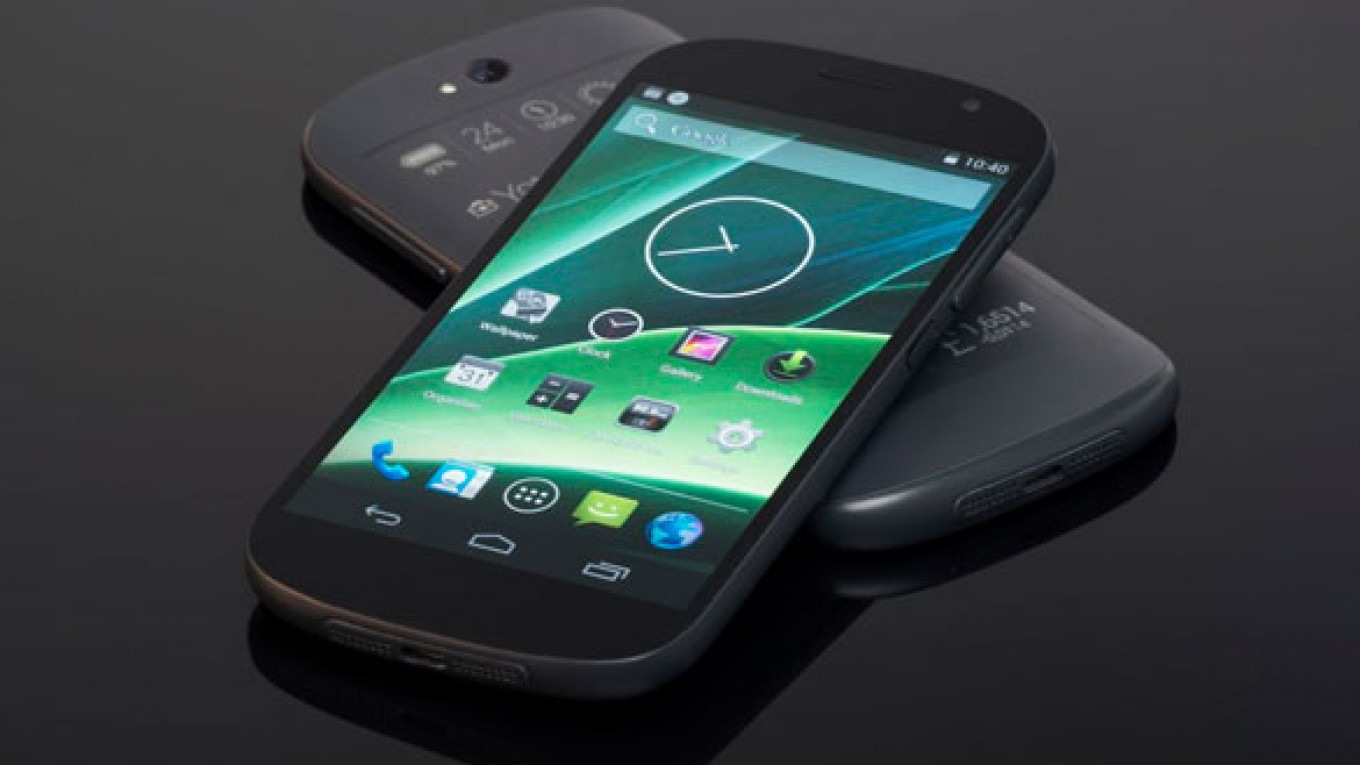Just months after the first sales of the YotaPhone, the Russian entry into the lucrative smartphone market, the device's manufacturer presented a new version of the phone at a mobile conference in Barcelona on Monday.
The phone has struggled to break into a market dominated by tech giants like Apple and Samsung. The sales of the first model in Russia started in December 2013 and according to Yota Devices, about 12,000 phones have been sold over the last two months. By contrast, Apple sold more than 9 million units of its new iPhone models during its first weekend of sales in September.
Industry analysts estimate that Russia's second stab at winning market share will have an easier time, as marketing efforts to promote the first model may have paved the way for the phones' brand.
Despite relatively low sales, the YotaPhone gained international attention last year for its dual-screen display. The new model includes two multi-touch control screens, adding on to the one-touchscreen device released last year. One screen is an always-on electronic paper display similar to e-readers, while the other resembles the 5-inch conventional display used in most smartphones.
The improvements in the next generation of YotaPhones are a result of crowd sourcing, said Yota Devices CEO Vlad Martynov. "The Android community — along with our partners, suppliers and retailers — love our dual-screen, always-on concept and have many great suggestions for taking it to the next level," he said.
Martynov did not specify how much investment the new model required, but an unidentified source in the company told Vedomosti that it was most likely several million dollars.
"The introduction of the new model seems rational because it looks like the company channeled a hefty sum into marketing to promote the first version, so it can now save on advertising costs," said Timur Nigmatullin, an analyst at Investcafe.
One well-known figure to promote the original phone was technology fan Prime Minister Dmitry Medvedev, who received it as a gift in December. "Is Apple feeling the heat?" he then asked Sergei Chemesov, the head of Rostech, which partly owns Yota Devices.
YotaPhone was originally compared with the iPhone because of its similar design, though the new phone's slick rectangular shape bears even more resemblance to the northern California product.
However, some say that the device's sales should not be compared with the sales of top brands that have been on the market for many years and are targeting a mass audience.
"This is a unique device which has its own audience, the so-called trendsetters, who are tracking new gadgets on the market and are eager to try them out first," said a spokesman for Svyaznoi, a large phone retailer that currently sells YotaPhones across Russia.
According to Svyaznoi, the trend set by YotaPhone is more important than the sales volumes, but industry analysts said those figures may pick up as well.
"If the new phone satisfies customer demand for design and usability, we think its sales will greatly surpass those of the first model," Nigmatullin said.
The next generation YotaPhone will be available for sale in Russia, Europe, the Middle East and Africa in the fourth quarter of 2014. A version for the U.S. and Asian markets will follow three to four months later. Yota Devices said in a statement that they will soon announce an upgrade program giving significant discounts for the new model to those who purchased the first YotaPhone.
The company did not yet reveal how much the new phone will cost. The first model costs about 20,000 rubles ($560). Internet commenters who bought the original phone on Yandex.market said that the device's chief drawback was its steep price, which is higher than analogues with similar functions. Yet they confirmed that phone's dual-screen feature was unique among smartphones.
Contact the author at [email protected]
A Message from The Moscow Times:
Dear readers,
We are facing unprecedented challenges. Russia's Prosecutor General's Office has designated The Moscow Times as an "undesirable" organization, criminalizing our work and putting our staff at risk of prosecution. This follows our earlier unjust labeling as a "foreign agent."
These actions are direct attempts to silence independent journalism in Russia. The authorities claim our work "discredits the decisions of the Russian leadership." We see things differently: we strive to provide accurate, unbiased reporting on Russia.
We, the journalists of The Moscow Times, refuse to be silenced. But to continue our work, we need your help.
Your support, no matter how small, makes a world of difference. If you can, please support us monthly starting from just $2. It's quick to set up, and every contribution makes a significant impact.
By supporting The Moscow Times, you're defending open, independent journalism in the face of repression. Thank you for standing with us.
Remind me later.






